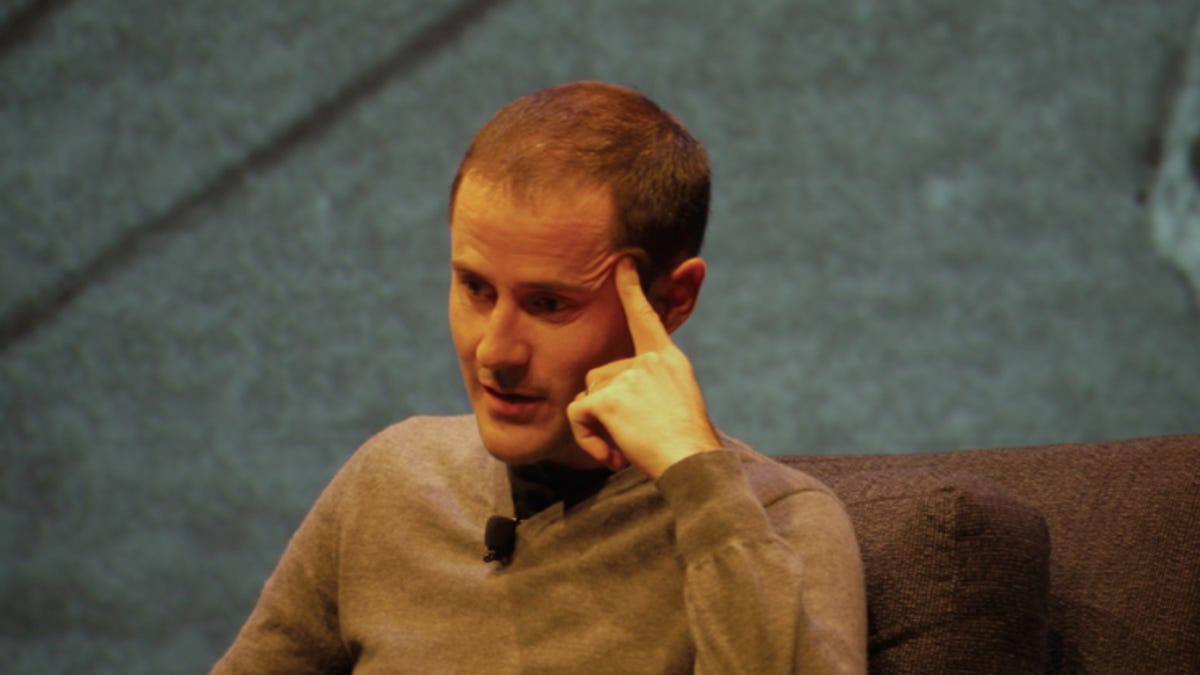Evan Williams: A mogul in Internet publishing
Twitter and Medium co-founder is a central figure in the Internet's evolution as a publishing medium for the masses.

NEW YORK -- Twitter and Medium co-founder Evan Williams loved reading magazines growing up in rural Nebraska in the pre-Internet days. It was a way to experience the world outside of Clarks, Nebraska, population 369.
"I wanted to get out of there and see the bigger world. [Clarks] is not a bad place to be, but I yearned to see the rest of the world," Williams said in conversation with Wired senior writer Steven Levy at the Wired Business Conference here.
Since leaving Nebraska for the West Coast, the 41-year-old serial entrepreneur has become one the Internet's most prolific media moguls. In the industry, he's not as high profile as News Corp.'s Rupert Murdoch or Time Warner's Jeffrey Bewkes, but he's undoubtedly one of the central figures behind the Internet's evolution as a publishing medium for the masses.
In 1999, Williams co-founded Pyra Labs to develop Blogger, a pioneering weblog publishing platform. It barely survived the dot-com bust, but achieved enough success that Google bought the company in 2003. Williams stayed at Google for a few years, but he yearned to get back to entrepreneurial endeavors. In 2004, he formed another company, Odeo, to focus on podcasts, but eventually his passion for the project waned. In 2006, he and a few partners started Obvious, a kind of incubator for ideas, which included Twitter. William sat at the helm of Twitter for a few years, but then turned his attention to another publishing idea, which became Medium.
For Williams, Medium is like a do-over for Blogger, a way to raise the bar for publishing on the Internet. Launched in 2012, Medium is a collaborative publishing platform that allows users to write, read, comment, annotate, and share content. It enters a market crowded with publishing platforms, including Tumblr, Facebook, WordPress, and Google's Blogger.
Williams described Medium as more of a network than a publishing tool.
"I looked at the software process, and the whole experience. It hadn't evolved in 10 years," Williams told Levy. "Blogging is a tool to publish standalone Web sites, connected haphazardly through hrefs or Google. You don't get ideas bumping into each other and building on that. We built Medium as a network, not a publishing tool. At least, it's an easy way to get a second set of eyes on what I wrote and collaborate with people.
"Essentially the goal is to create a better place to read and write, greater than 140 characters and not just for your friends," Williams said. "We're going to be a great place for professional writers to write. The magazine is the analog for what we're doing. We are not doing news."
So it's back to where he started in Nebraska with magazines. Medium may be Williams' attempt to create a magazine for the Internet age, a brand that recalls the quality and substance of the publications he admired as a youth.
Indeed, Medium is looking more like a magazine than a publishing tool, just as Twitter is becoming more newspaper-like than just a messaging service. Medium has a team of five editors who curate content, and it pays some writers for their pieces. Also, Medium recently acquired Matter, a site that publishes longer-form technology and science articles and sells them for 99 cents each.
"We're focused on ideas and stories that have a longer shelf life -- short opinion pieces or long-form investigative journalism. We want that to thrive," Williams said.
Whether Medium thrives or becomes a footnote in the history of the Internet is hard to tell at this point. The site is in its infancy, with a small number of writers participating in the platform. But Williams has a track record that would indicate he has a good chance of realizing his dream of raising the quality of ideas and content on the Internet.
"There's something about just hanging around when it comes to success on the Internet," Williams said. "If you don't die, then you win sometimes."
